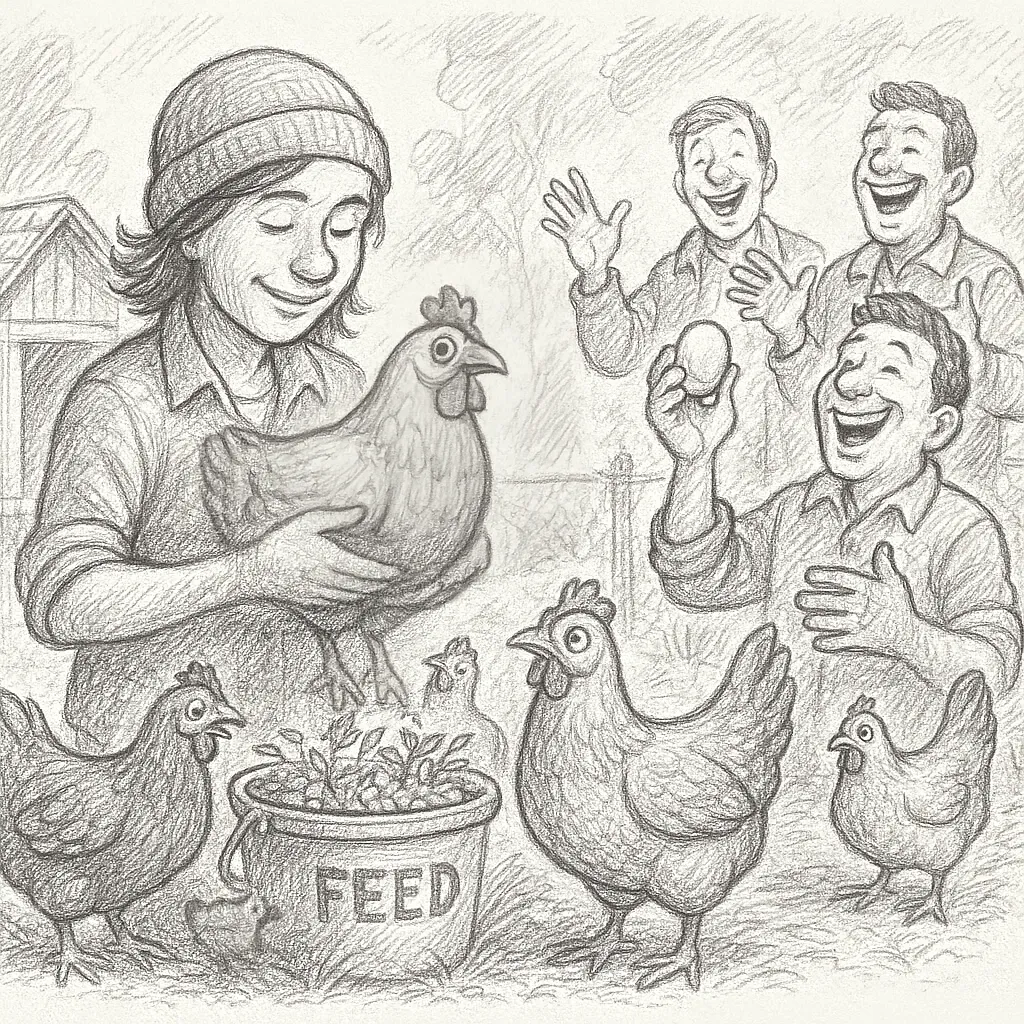
They Laughed When I Started Sprouting Chicken Feed (…Then They Tasted My Eggs)
Quick Recap for Busy Chicken Peeps
Organic feed still lets nutrients go to waste
Sprouting makes feed fresh, alive, and complete
Sprouting saves money and boosts egg quality
NCO feed is better—but sprouts are best
Even skeptics change after just one bite
The Day I Realized My Chickens Deserved More Than Just a Bag of Dust
They laughed when I told them I started sprouting chicken feed.
I remember the look...part curiosity, part condescension...as if I had gone just a little too far down the chicken hole. Maybe you’ve seen that look too. The one that says: “That’s cute… but not going to work.”
And to be honest? At first, I wondered if they were right.
I had been feeding my chickens “Nature’s Way,” a bagged organic brand from Tractor Supply. It was what made sense at the time. Organic felt like the more logical choice—fewer chemicals, more aligned with the environment, healthier for the hens, and therefore, healthier for us.
You’ve heard it before: we are what our animals eat.
And still… even with organic feed, I’d watch those chickens kick their feed onto the ground like it was sawdust. Wasteful. Boring. Something was off. Something was missing.
But I didn’t know what, yet.
The Truth About Feed Most Folks Don’t Want to Hear
When we started renting chickens, I found myself in a dilemma.
How could I, in good conscience, tell new chicken keepers to feed their birds the same stale pellets we first used? Especially when I already knew better. I began reselling New Country Organics (NCO) because the quality was visibly, smellably, and tastably superior. The birds responded to it like kids to candy, except this was actually nourishing.
Eventually, I stopped offering options and made NCO part of the rental package. Why?
Because feeding chickens cheap feed is like telling your family to survive on Great Value frozen burritos and Mountain Dew every day. That’s not stewardship. That’s neglect with a smile.
And here’s the kicker: we already know this when it comes to our own food.
You stand in the grocery aisle, weighing the pros and cons of the organic apples versus the conventional ones. You might even toss in the gluten-free cookies, justifying it by thinking about gut health or that dopamine hit.
But when it comes to the eggs we’re pulling from our own backyards, we act like it doesn’t matter.
That $18 bag from Tractor Supply? It’s loaded with the cheapest grains, most of them ground into an unrecognizable, dusty mash. You wouldn’t eat it. So why ask your chicken to turn that into a golden egg?
Go ahead. Tell her to take that crap and spin it into gold.
Okay.
Why Your Eggs Still Taste “Meh” (Even If You're Feeding Organic)
Backyard chicken keepers everywhere are silently wondering: Why don’t my eggs taste like those legendary farm eggs I’ve heard about?
They bought the organic feed. They did the “right” thing. But when breakfast hits the skillet… the eggs are still just okay.
You want eggs that stop people mid-bite. That makes your neighbor do a double-take and say, “What did you feed them?!”
I’m telling you now, the answer is so simple it’s almost laughable:
We feed sprouts to our flock.
Sprouted grains. Soaked in water and grown in a jar. Less than a week later—living, breathing food. Fresh chlorophyll, enzymes, bioavailable minerals… all the things the pelletized, bagged feed once had.
Before it got cooked, processed, bagged, and stacked under fluorescent lights at the store.
Sprouts are better than organic because they’re alive.
The Moment They Tasted the Difference
I didn’t start sprouting to impress anyone.
I did it because I felt like I owed it to my birds—to their dignity, to their biology. And I figured that if I’m going to raise an animal that provides me with food, I should at least give it worthy food.
But then something happened.
Our eggs started changing. The yolks got darker. The shells are stronger. The flavor is richer, creamier, almost buttery. The kind of egg you remember after the last bite.
And word got out.
People who laughed before? They came back, quiet now, asking what we were doing differently.
They tasted the difference.
You Don’t Need Fancy Equipment—Just a Jar and a Few Grains
If you’re still feeding stale feed and wondering why your eggs are bland, don’t overthink it.
Start simple.
Just soak some barley in a mason jar. Rinse it daily. Let it sprout. Within a few days, you’ve got something your chickens will devour with joy.
This isn’t about being trendy or crunchy or the weird neighbor who talks to chickens.
It’s about becoming a better steward of life. Yours. Theirs. And the community around your farm—even if your farm is just a backyard coop.
Because when you start feeding sprouts to your flock?
Your neighbors might laugh.
Until they taste your eggs.
👉 Don’t know how to sprout yet? I made a short video that shows you how to sprout barley in a mason jar. Easy, no fluff. Just click here to watch.
